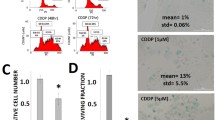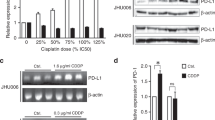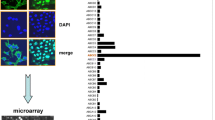Abstract
Purpose: To evaluate the correlation between cisplatin sensitivity, intracellular glutathione, and platinum/DNA adduct formation (measured by atomic absorption spectroscopy) in a series of seven head and neck cancer cell lines, and to evaluate the effect of biochemical modulation of glutathione on platinum/DNA adduct formation and repair. Methods: Cisplatin/DNA adducts were measured by atomic absorption spectroscopy. Glutathione content was measured by enzymatic assay and was modulated with buthionine sulfoximine. Apoptosis was measured by double-labeled flow cytometry. Results: Intracellular glutathione concentration was strongly correlated with cisplatin resistance (P = 0.002, R 2=0.7). There was also a statistically significant inverse correlation between cisplatin/DNA adduct formation and the IC50 for cisplatin in these cell lines. (P=0.0004, R 2=0.67). In addition, resistant cells were able to repair approximately 70% of cisplatin/DNA adducts at 24 h, while sensitive cells repaired less than 28% of adducts in the same period. However, despite the positive correlation between cellular glutathione and cisplatin resistance, there was no direct correlation between intracellular glutathione concentration and platinum/DNA adduct formation. Further, depletion of intracellular glutathione by buthionine sulfoximine did not dramatically alter formation of cisplatin/DNA adducts even though it resulted in marked increase in cisplatin cytotoxicity and was associated with increased apoptosis. Conclusions: These results suggest that glutathione has multiple effects not directly related to formation of cisplatin/DNA adducts, but may also be an important determinant of the cell's ability to repair cisplatin-induced DNA damage and resist apoptosis.
Similar content being viewed by others
Author information
Authors and Affiliations
Additional information
Received: 9 December 1999 / Accepted: 10 May 2000
Rights and permissions
About this article
Cite this article
Yang, Z., Faustino, P., Andrews, P. et al. Decreased cisplatin/DNA adduct formation is associated with cisplatin resistance in human head and neck cancer cell lines. Cancer Chemother Pharmacol 46, 255–262 (2000). https://doi.org/10.1007/s002800000167
Issue Date:
DOI: https://doi.org/10.1007/s002800000167




